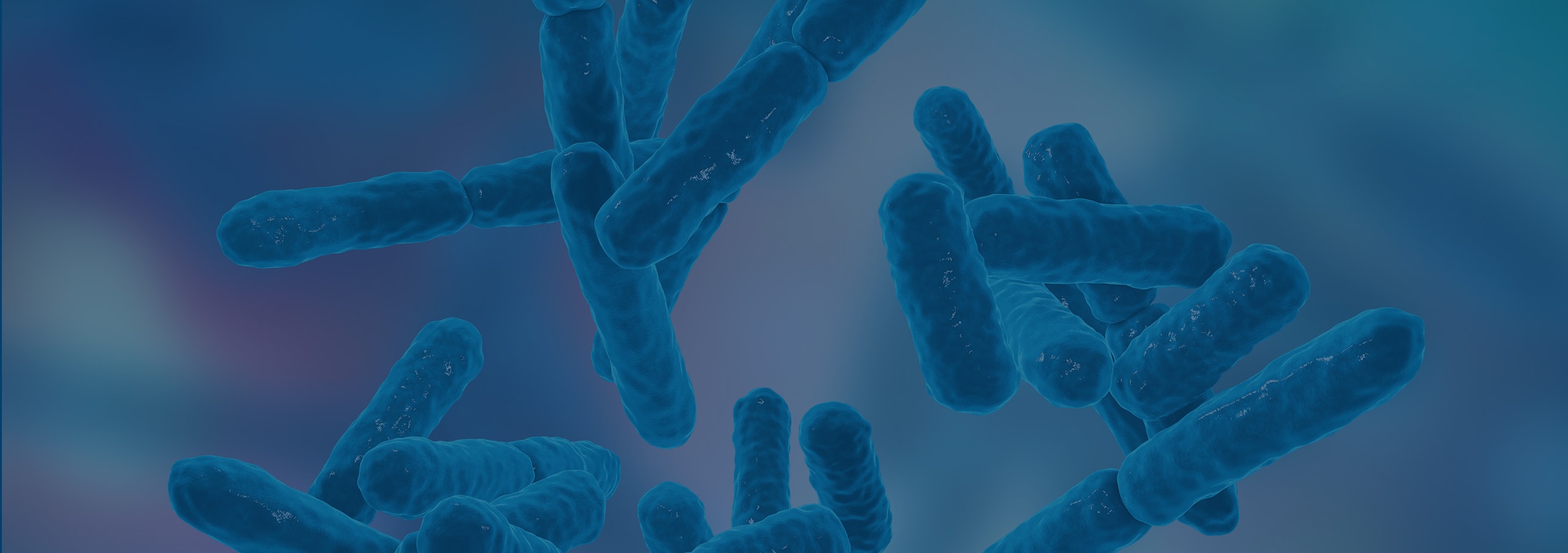
What is our Gut Microbiome?
Welcome to the unseen world thriving within you! The gut microbiome is a vast ecological community of microorganisms, including bacteria, viruses, fungi, and other microbes (1013-14 cells/gram), that reside in your digestive tract, primarily in the intestines (1). Think of your gut as a vibrant city where trillions of microbes reside. Despite their microscopic size, these residents play colossal roles in your well-being and influence your health in ways you might never have imagined, from nutrient absorption, regulating the metabolism, supporting the immune system and even influencing your mood and mental health.
No two microbiomes are alike—your gut microbiome is as unique as your fingerprint (2). Factors such as diet, lifestyle, environment, and genetics shape this intricate ecosystem. A diverse microbiome is often a sign of good health, as it indicates a robust and resilient microbial community capable of adapting to various challenges (3).
The Microbiome and its Role in Human Biology
The microbiome is responsible for essential functions in our body:
- Digestion and Nutrient Absorption: They help break down food that the stomach and small intestine can’t digest on their own, such as complex carbohydrates, proteins, and fats, making nutrients more accessible to your body thus aiding in nutrient absorption (4-6).
- Immune System Support: The gut microbiome helps train and support your immune system, protecting you against harmful pathogens (7-9).
- Metabolic Regulators: These microbes assist in energy balance and fat storage, influencing your glucose metabolism and cholesterol levels (10). Gut microbes are also responsible for producing essential vitamins like vitamin B derivatives (B1,B2, B3, B5, B6, B7, B9, B12) and vitamin K (11-14).
- Mental Health: Emerging research suggests that the gut microbiome can influence our mood and mental health, often referred to as the “gut-brain axis” (15-19).
How to Study the Gut Microbiome
To embark on the fascinating journey of understanding what resides within your gut, DayTwo applies a unique set of actions to verify the highest quality of data extracted from your stool sample.
The first step is to properly collect a stool sample using the instructions provided with the collection kit. Once the kit arrives at our lab, the DNA within the stool is extracted, a crucial step for downstream applications such as sequencing.
Shotgun vs 16S rDNA Sequencing Methods:
- Shotgun metagenomic sequencing is a comprehensive approach that sequences all the genomic material present in a sample, providing a detailed, high resolution picture of the microbial community composition up to the strain level, functional potential, and genetic diversity. This technique can identify microorganisms across all domains of life, including bacteria, archaea, fungi, viruses, and protists.
- 16S rDNA gene sequencing focuses specifically on a conserved genetic marker found in bacteria only. However, this targeted approach is limited to the bacterial genus level and does not provide information about the functional potential or genetic diversity of the microbial community beyond taxonomic identification.
DayTwo uses shotgun metagenomic sequencing as it is the superior sequencing method, providing a more comprehensive view of the microbial community, including functional potential and genetic diversity.
The Power of Combining Microbiome Insights with Medical Records Data
Combining microbiome insights with medical records data can revolutionize personalized medicine. By analyzing both sets of data, researchers and healthcare providers can gain a comprehensive understanding of an individual’s health.
- Disease Prediction and Prevention: Identifying correlations between microbiome composition and medical history can help predict the risk of diseases like diabetes, obesity, and inflammatory bowel disease, leading to early interventions.
- Personalized Treatment: Tailoring treatments based on an individual’s microbiome and medical history can improve the effectiveness of therapies, such as selecting the most suitable probiotics or dietary adjustments.
- Understanding Interactions: This combined data can reveal how medications and treatments affect the microbiome, helping minimize side effects and improve patient outcomes.
Integrating microbiome insights with medical records allow for more precise and effective healthcare, enhancing prevention and treatment strategies.
Can We Improve our Microbiome?
Improving our microbiome is increasingly recognized as a vital aspect of enhancing overall health and preventing disease. Strategies to improve the microbiome include dietary adjustments, such as increasing the intake of fiber-rich foods, fruits, and vegetables that feed beneficial bacteria. Probiotics and prebiotics, available through supplements or fermented foods like yogurt and kefir, can also promote a healthy microbiome. Lifestyle changes, such as regular exercise, adequate sleep, and stress management, further support microbiome health. Avoiding unnecessary antibiotics and adopting a balanced diet can prevent disruption of the microbiome. These practices collectively contribute to a more diverse and resilient microbiome, which is associated with better immune function, metabolic health, and mental well-being.
What Influences our Microbiome?
Diet and Hydration
Diet: The food we eat has a profound impact on our gut microbiome. A diet rich in fiber, fruits, vegetables, whole grains, and fermented foods like yogurt and sauerkraut promotes the growth of beneficial bacteria. Fiber acts as food for these bacteria, helping them thrive (20).
Hydration: Drinking plenty of water helps maintain the balance of bacteria in the gut. Proper hydration supports digestion and the overall function of the digestive system (21).
Stress
Chronic stress can negatively affect the gut microbiome, leading to an imbalance called dysbiosis. Stress hormones can alter the composition of gut bacteria, reducing beneficial microbes and allowing harmful ones to proliferate. Managing stress through relaxation techniques, exercise, and sufficient sleep can help maintain a healthy microbiome (22).
Environment
Our surroundings, including where we live and work, influence our microbiome. Exposure to different environments introduces a variety of microorganisms to our system. Spending time in nature, having pets, and avoiding overly sterile environments can promote a more diverse microbiome (23).
Medications
Certain medications, especially antibiotics, can disrupt the gut microbiome by killing not only harmful bacteria but also beneficial ones. While antibiotics are necessary for treating infections, it’s important to use them judiciously (24). Probiotics and prebiotics can help restore the microbiome after antibiotic use (25-26).
Physical Activity
Regular physical activity is beneficial for the gut microbiome. Exercise increases the diversity of gut bacteria and promotes the growth of beneficial species. It also helps regulate bowel movements and reduce inflammation, contributing to a healthier gut environment (27).
Future Applications in Health and Disease
The fast advancements in microbiome science are poised to revolutionize the worlds of medicine and wellness. The fact that the microbiome can be modified and restored opens new avenues in personalized medicine, where treatments and preventive measures are tailored to one’s microbiome composition, thus enhancing efficacy and reducing side effects. Microbiome-based therapies might offer new solutions for conditions like inflammatory bowel disease, obesity, diabetes, and even mental health disorders, by restoring or modifying gut flora. Additionally, the development of microbiome diagnostics could enable early detection of diseases, monitoring of treatment responses, and maintenance of health through dietary and lifestyle modifications that promote a balanced microbiome.
DayTwo pioneered the use of microbiome to predict blood sugar response to improve, treat, and prevent metabolic disease using precision nutrition. By leveraging our unique dataset, which combines microbiome information together with deep patient phenotyping (disease diagnostics, medication usage, clinical tests, nutritional, and behavioral information) we aim to develop microbiome based solutions to improve human health and wellbeing.
References
- Hou, K., Wu, Z. X., Chen, X. Y., Wang, J. Q., Zhang, D., Xiao, C., … & Chen, Z. S. (2022). Microbiota in health and diseases. Signal transduction and targeted therapy, 7(1), 135. https://doi.org/10.1038/s41392-022-00974-4
- Chen, L., Wang, D., Garmaeva, S., Kurilshikov, A., Vila, A. V., Gacesa, R., … & Fu, J. (2021). The long-term genetic stability and individual specificity of the human gut microbiome. Cell, 184(9), 2302-2315.
- Spragge, F., Bakkeren, E., Jahn, M. T., BN Araujo, E., Pearson, C. F., Wang, X., … & Foster, K. R. (2023). Microbiome diversity protects against pathogens by nutrient blocking. Science, 382(6676), eadj3502.
- Martin-Gallausiaux, C., Marinelli, L., Blottière, H. M., Larraufie, P., & Lapaque, N. (2021). SCFAs: mechanisms and functional importance in the gut. Proceedings of the Nutrition Society, 80(1), 37-49. https://doi.org/10.1017/S0029665120006916
- Jumpertz, R., Le, D. S., Turnbaugh, P. J., Trinidad, C., Bogardus, C., Gordon, J. I., & Krakoff, J. (2011). Energy- balance studies reveal associations between gut microbes, caloric load, and nutrient absorption in humans. The American journal of clinical nutrition, 94(1), 58-65.
- Flint, H. J., Scott, K. P., Duncan, S. H., Louis, P., & Forano, E. (2012). Microbial degradation of complex carbohydrates in the gut. Gut microbes, 3(4), 289-306.
- Ost, K. S., & Round, J. L. (2018). Communication Between the Microbiota and Mammalian Immunity. Annual review of microbiology, 72. https://doi.org/10.1146/annurev-micro-090817-062307
- Macpherson, A. J., de Aguero, M. G., & Ganal-Vonarburg, S. C. (2017). How nutrition and the maternal microbiota shape the neonatal immune system. Nature Reviews Immunology, 17(8), 508. https://doi.org/10.1038/nri.2017.58
- Koren, O., Konnikova, L., Brodin, P., Mysorekar, I. U., & Collado, M. C. (2023). The maternal gut microbiome in pregnancy: implications for the developing immune system. Nature Reviews Gastroenterology & Hepatology, 1-11. https://doi.org/10.1038/s41575-023-00864-2
- Corbin, K. D., Carnero, E. A., Dirks, B., Igudesman, D., Yi, F., Marcus, A., … & Smith, S. R. (2023). Host-diet-gut microbiome interactions influence human energy balance: a randomized clinical trial. Nature Communications, 14(1), 3161. https://doi.org/10.1038/s41467-023-38778-x
- LeBlanc, J. G., Milani, C., de Giori, G. S., Sesma, F., Van Sinderen, D., & Ventura, M. (2013). Bacteria as vitamin suppliers to their host: a gut microbiota perspective. Current opinion in biotechnology, 24(2), 160-168. https://www.sciencedirect.com/science/article/pii/S095816691200119X
- Magnúsdóttir, S., Ravcheev, D., de Crécy-Lagard, V., & Thiele, I. (2015). Systematic genome assessment of B- vitamin biosynthesis suggests co-operation among gut microbes. Frontiers in genetics, 6, 148. https:// www.frontiersin.org/articles/10.3389/fgene.2015.00148/full
- Rumberger, J. A., Napolitano, J., Azumano, I., Kamiya, T., & Evans, M. (2011). Pantethine, a derivative of vitamin B5 used as a nutritional supplement, favorably alters low-density lipoprotein cholesterol metabolism in low–to moderate–cardiovascular risk North American subjects: a triple-blinded placebo and diet-controlled investigation. Nutrition research, 31(8), 608-615.
- Institute of Medicine (US) Standing Committee on the Scientific Evaluation of Dietary Reference Intakes. (1998). Dietary reference intakes for thiamin, riboflavin, niacin, vitamin B6, folate, vitamin B12, pantothenic acid, biotin, and choline. National Academies Press (US).
- Wong, Y. S., & Osborne, N. J. (2022). Biodiversity Effects on Human Mental Health via Microbiota Alterations. International journal of environmental research and public health, 19(19), 11882.
- Puricelli, C., Rolla, R., Gigliotti, L., Boggio, E., Beltrami, E., Dianzani, U., & Keller, R. (2022). The gut-brain-immune axis in autism spectrum disorders: a state-of-art report. Frontiers in Psychiatry, 12, 755171.
- Lee, Y., & Kim, Y. K. (2021). Understanding the connection between the gut–brain axis and stress/anxiety disorders. Current psychiatry reports, 23, 1-7.
- Bear, T., Dalziel, J., Coad, J., Roy, N., Butts, C., & Gopal, P. (2021). The microbiome-gut-brain axis and resilience to developing anxiety or depression under stress. Microorganisms, 9(4), 723.
- Doifode, T., Giridharan, V. V., Generoso, J. S., Bhatti, G., Collodel, A., Schulz, P. E., … & Barichello, T. (2021). The impact of the microbiota-gut-brain axis on Alzheimer’s disease pathophysiology. Pharmacological Research, 164, 105314.
- Wilson, A. S., Koller, K. R., Ramaboli, M. C., Nesengani, L. T., Ocvirk, S., Chen, C., … & O’Keefe, S. J. (2020). Diet and the human gut microbiome: an international review. Digestive diseases and sciences, 65, 723-740.
- Sato, K., Hara-Chikuma, M., Yasui, M., Inoue, J., & Kim, Y. G. (2024). Sufficient water intake maintains the gut microbiota and immune homeostasis and promotes pathogen elimination. iScience, 27(6).
- Xu, C., Lee, S. K., Zhang, D., & Frenette, P. S. (2020). The gut microbiome regulates psychological-stress-induced inflammation. Immunity, 53(2), 417-428.
- Kates, A. E., Jarrett, O., Skarlupka, J. H., Sethi, A., Duster, M., Watson, L., … & Safdar, N. (2020). Household pet ownership and the microbial diversity of the human gut microbiota. Frontiers in cellular and infection microbiology, 10, 73.
- Van Zyl, K. N., Matukane, S. R., Hamman, B. L., Whitelaw, A. C., & Newton-Foot, M. (2022). Effect of antibiotics on the human microbiome: A systematic review. International journal of antimicrobial agents, 59(2), 106502.
- Bodke, H., & Jogdand, S. (2022). Role of probiotics in human health. Cureus, 14(11).
- Bedu-Ferrari, C., Biscarrat, P., Langella, P., & Cherbuy, C. (2022). Prebiotics and the human gut microbiota: From breakdown mechanisms to the impact on metabolic health. Nutrients, 14(10), 2096.
- Ortiz-Alvarez, L., Xu, H., & Martinez-Tellez, B. (2020). Influence of exercise on the human gut microbiota of healthy adults: a systematic review. Clinical and translational gastroenterology, 11(2), e00126.
- Yunyun Gao, Danyi Li, Yong-Xin Liu, Microbiome research outlook: past, present, and future, Protein & Cell, Volume 14, Issue 10, October 2023, Pages 709–712, https://doi.org/10.1093/procel/pwad031


